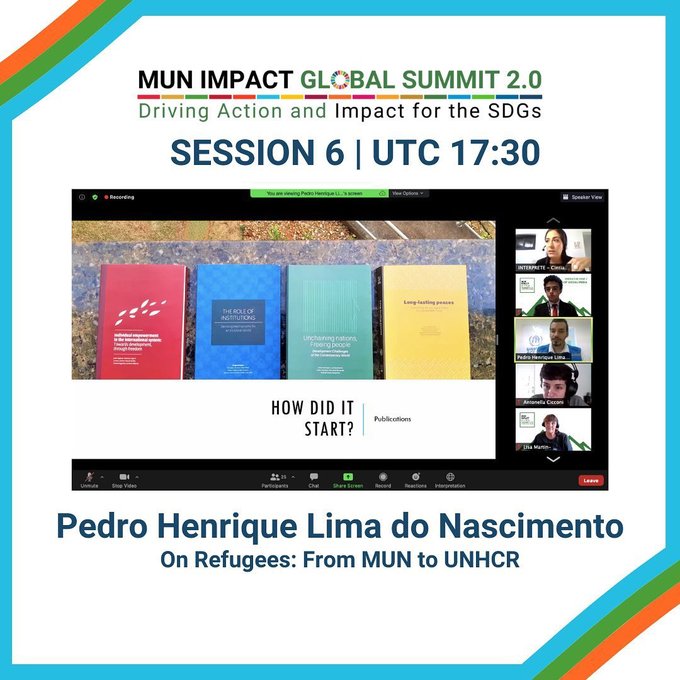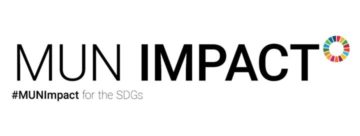
By Shambhawi Sahoo
–
Pedro Henrique Lima do Nascimento is currently working at Boa Vista, Brazil for The Office of United Nations High Commissioner for Refugees (UNHCR) helping Venezuelan refugees to start a new life in Brazil. In this workshop, he took a dive into his journey from an MUN delegate to being a part of the UNHCR.
Mr. Pedro began with sharing his experience of his first MUN conference. In 2009, he participated in Model United Nations for High School Students (SiNUS) held by the University of Brasília. He represented Chad in the Social, Humanitarian and Cultural Committee which was discussing the issue of Children Refugees in Sub-Saharan Africa. This experience made him determined to make a difference in the lives of refugees. Throughout his MUN journey, he had the opportunity to meet heads of state as well as several UN officials.
Talking about his work with UNHCR, he started working in 2019 at Pacaraima at the Brazilian-Venezuelan border. At Pacaraima, he held multiple sessions on the rights of refugees and migrants with about five hundred people attending the sessions everyday. Apart from this, he also worked with registering refugees in the UN data system. He has been working in Boa Vista since March this year. He registers and documents the refugees as well as provides support to domestic resettlement and cash based intervention teams.
According to the 1951 UN Refugee Convention, refugees are granted the right of non-refoulement, which is the right to not enter the country where they are persecuted. Besides this Convention, the 1984 Cartagena Declaration on Refugees is a regional Latin American instrument which highlights the rights of refugees. Mr. Pedro briefly talked about the UNHCR which was established in 1950 by the United Nations General Assembly to provide critical emergency assistance to displaced populations. He said that 29.6 million refugees are outside of their country of origin in refugee-like situations and two-thirds of them are from one of the five countries- Afghanistan, Myanmar, South Sudan, Syria and Venezuela as of 17 June, 2020.
He mentioned that the Brazilian government under its “Operation Welcome” receives Venezuelan refugees with support from UNHCR. He then pointed out, in Brazil, 95% of refugees are Venezuelans. Here, 102,504 Venezuelans have requested refugee status of which 54,167 have been granted the status as of 30 August, 2020. An additional 148, 782 have requested for temporary asylum in Brazil. The UNHCR in Brazil is providing assistance to the refugees in the form of shelter, food, cash, organising awareness campaigns related to COVID-19 and rights of refugees, providing durable solutions which include helping them to find jobs and a settled livelihood in Brazil.
When asked what is the best way for students to be engaged with the UN, he answered that there are several internship programmes available for which students can enroll. Also, taking part in Model UN conferences is an excellent way to get a taste of diplomacy. He highlighted his own experience of his first MUN conference where the MUN had partnered with UNHCR which sparked his interest to work for the betterment of refugees. When questioned about the most challenging thing he came across, he answered that listening to the stories of refugees, most of whom have been severely tortured and abused, proved to be a major challenge for him.
He added that one who is preparing to work for the cause of refugees should be strong hearted and prepared to listen to their stories.
The workshop was highly informative and provided a sneak-peek into the refugee life as well as the impact UNHCR has on the lives of countless displaced people. It left the participants feeling inspired to work for a cause.
The full recorded session of this workshop can be accessed here.
